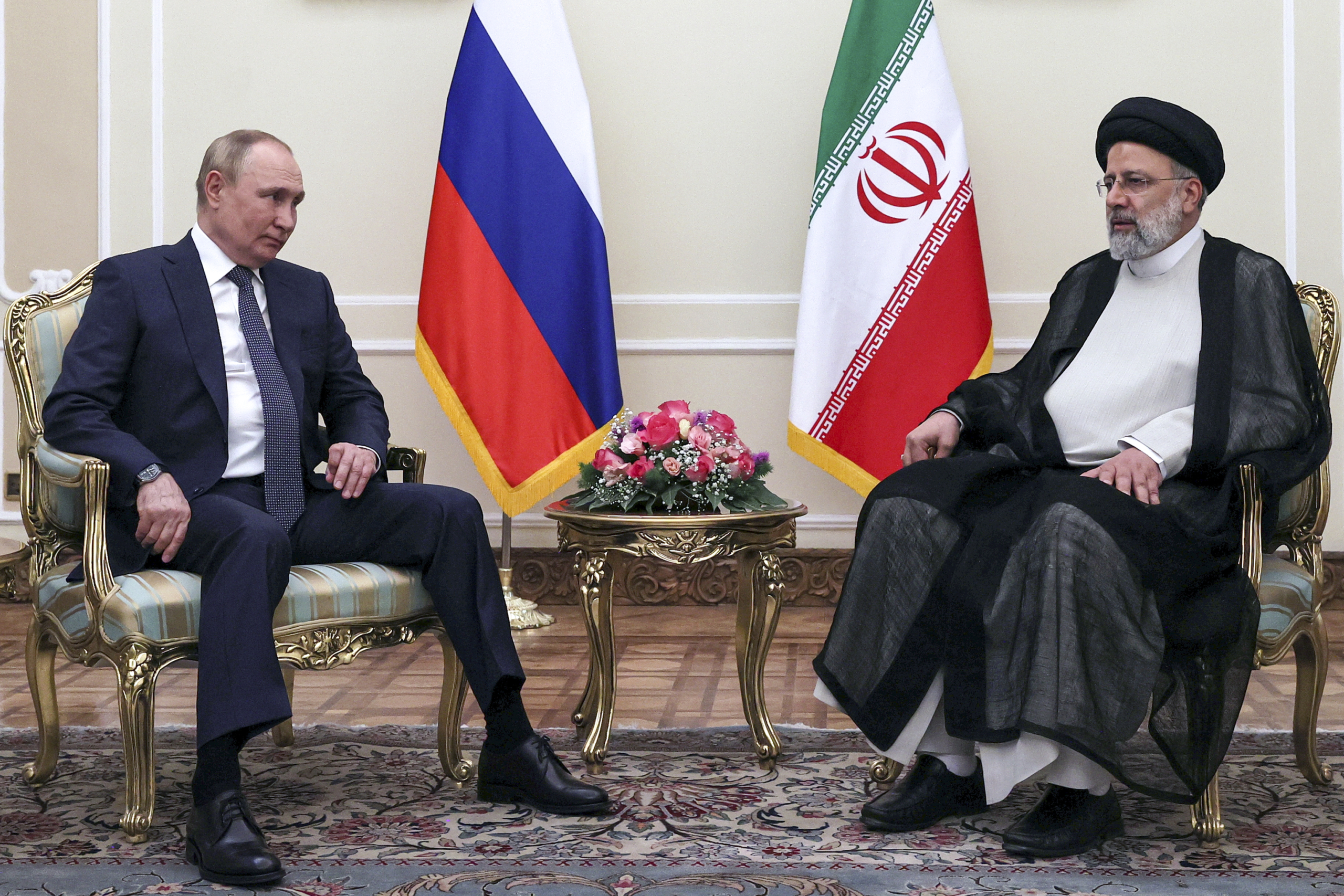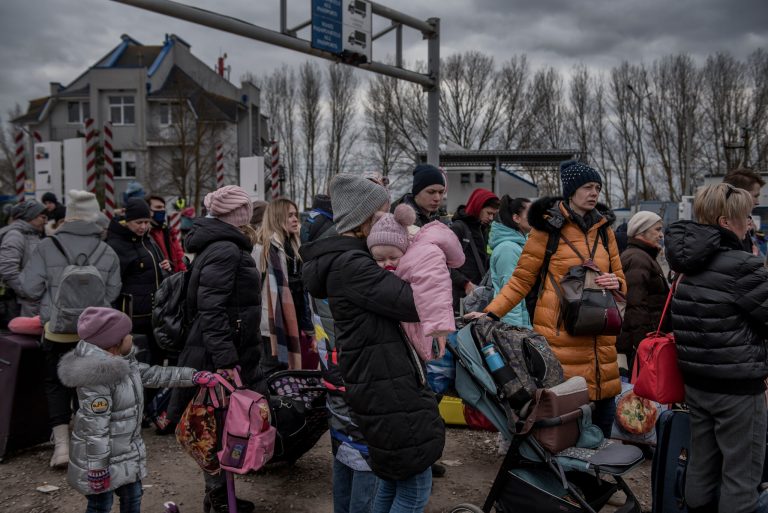By Shayan Fallahi and Kiyana Nahvi, Regional Editors Middle East
The Iran-Russia Paradox
Iran and Russia have long been close allies, however, is this friendship compatible?

In January of this year, Iran and Russia signed a 20-year strategic partnership covering various factors such as trade, investment, and infrastructure. One thing missing was a mutual defence clause. This may seem confusing, or like a tactical move to avoid confrontation from the West, but it establishes a greater desire that Russia wishes to have in the international sphere. Although generally considered to have a close relationship emanating from their shared revisionist outlook, with a hostility to the Western international order, the two states continue to face issues surrounding their shared geostrategic desires and ideological outlooks. The relationship is less substantial than it appears. Russia tends to support Iran when it is strategically convenient to do so, while continuing to maintain strong ties with Iran’s adversaries such as Israel.
This paper aims to analyse the imbalanced relationship between Russia and Iran due to their geostrategic and ideological differences. Providing a context of the two nations’ historical hostility, we first discuss the ideological differences of each state and the nature in which they occurred. The article analyses Iran’s involvement in aiding Russia throughout the invasion of Ukraine, demonstrating its commitment to a proxy war with the US and its own Islamist ideology, while discussing the lack of Russian reciprocation. Russia’s desire to reproduce its hegemonic power is signified through the discussion of its continued relation with Israel, supported by the lack of military and diplomatic aid to Iran during both the fall of the Assad regime and the recent 12-day war with Israel. With the Israeli relationship, we argue that Russia continues to prioritise its European and international aims over the defence of Iran due to its incompatibility with the regime’s Islamist ideology and geostrategic aims of destroying Israel.
Historical Context
Russia and Iran have shared a problematic history spanning half a millennium, generally filled with mutual hostility. In the 18th and 19th centuries, Imperial Russia expanded into the Persian-controlled caucuses, annexing northern Iranian provinces such as Azerbaijan, which Tehran continues to lament.
The 20th century saw Soviet Russia invade Iran during the Second World War in an attempt to access Iranian oil, and continue support for independence movements such as in Azerbaijan. Relations remained strained after the 1979 Iranian Islamic revolution. Ayotallah Khomeini’s radical thought focused on a foreign policy of the ummah, uniting the muslim world under his jurisdiction, which involved the destruction of Israel. This new Islamist ideology was as opposed to the Soviet Union as it was to the United States, with Khomeini often referring to them as ‘Greater Satan’ and ‘Lesser Satan’. This became a foundation of the regime, notable for na sharghi, na gharbi, jomhuri ye eslami’, meaning ‘Neither East, nor West, but an Islamic Republic’[1]. Hence, this led the Soviet Union to provide Iraq with military aid throughout its war with Iran in the 1980s.
In 1991, the Soviet Union collapsed, and the Russian Federation was established in its place. Under Putin, a new state emerged with its own bold geopolitical ambitions. These were aimed at reestablishing Russia as a major global power and maintaining its hegemony in the post-Soviet space.
This Russia was closer to Iran. No longer communist and now adherent to Vladimir Putin’s worldview, Moscow shared Tehran’s vision of opposing American hegemony. However, Russia still frequently sided with Western powers against Iran for its own benefit, cherry-picking when to support the Islamic Regime. For example, Moscow helped enforce Western sanctions on Iran due to its nuclear programme in the 2000s. It also refused to supply Iran with quality weapon systems and did not deliver the military equipment Iran had paid for. Iran purchased the S-300 air defence system from Russia in 2007 for $800 million, only to have it delivered nearly a decade later, in 2016[2].
As Western pressure against Russia increased after its 2014 annexation of Crimea, cooperation with
Iran grew. This culminated in their joint years-long military intervention in Syria. However, trust remained scarce, and both sides viewed the other with suspicion, fearing they would prioritise their own interests at the other’s expense.
This is because the Russian Federation and the Islamic Republic of Iran share few ideological similarities or a common strategic outlook. They both oppose American hegemony, and the more its power is felt in planning rooms of Moscow and Tehran, the more they look to each other for support. But outside of this, the differences are stark. Iran’s Islamic theocracy, whose ultimate strategic aim of the Persian-led Shia order in West Asia and the destruction of Israel[3], does not conform with Russia’s Christian nationalist autocracy, whose strategic aim is the restoration of Russia as a global power and continues to maintain relations with Israel[4]. Hence, they share incompatible objectives, and if not for American overreach into their respective regions, they could be in conflict, as has historically been the case.
Relations throughout the invasion of Ukraine
When Russia invaded Ukraine in February 2022, it did not expect to encounter such a robust defence, especially considering that Ukraine is not a member of NATO. Russian armies struggled under a hail of Western-supplied drones and anti-tank missiles. The US has been the largest source of aid to Ukraine, providing $69 billion up to the end of 2024. This included US-made ATACMS missiles, which President Biden lifted a previous ban on, allowing them to be fired into Russian territory[5]. Russia’s inadequate planning contributed to the disaster. Subsequently, Moscow found itself in a long war of attrition and a sphere of isolation imposed by an opposed Western order.
The Islamic Regime, with a deep hostility towards the West, began to provide extensive military aid to Russia. Tehran viewed the conflict as a proxy war with the West and began contributing militarily and economically.
Iran states that any allegations of its involvement in arms sales are ‘entirely baseless and categorically rejected’[6].
Nonetheless, there is overwhelming evidence to suggest otherwise. On the 9th June, Ukraine complained to the United Nations Security Council:
‘In May 2023, Ukraine suffered the use of this type of weaponry on a paramount scale, reaching almost 100 Iranian unmanned aerial vehicles per day; in particular, against Kyiv alone, 17 massive air attacks were registered.’
‘Such weaponry includes the long-range ballistic missiles “Fateh-11O” and “Zolfaghar”, and cruise missiles “Paveh”.’ [7]
Investments into banking sectors, infrastructure, and trade grew after the invasion of Ukraine. In 2022, Russia’s Gazprom signed an investment of $40 billion to develop Iran’s Kish and North Pars gas fields[8]. Furthermore, the two countries signed a free trade agreement in December 2023, which would go into effect in 2025[9]. Following this treaty, they signed a 20-year strategic partnership in January 2025[10]. The treaty covers trade, energy, and nuclear, but does not include a mutual defence clause. Its absence could have been a move to avoid scrutiny, but it also demonstrates Russia’s desire to maintain a flexible stance on Iranian security.
The level of military investment also comes with important caveats. Russia has failed to provide such a favour of advanced weaponry to Tehran, especially in recent conflicts such as the 12-day war with Israel and the US. Saivetz argues that Russia may prefer Iran to be in a weak position regarding the United States, as it forces Tehran to be more dependent on Russia[11]. However, there is a further element that is not considered, which is Russia’s maintenance of a strained yet strategic relationship with Israel, which directly goes against both Iran’s geographical and ideological aims.
The issue of Israel amidst Iran and Russia
Despite the increase in bilateral relations from the war in Ukraine, cooperation between Moscow and
Tehran remains limited for several reasons.
A major factor limiting Russia’s relations with Iran is its strong bilateral ties with Israel. Iran views Israel as its primary nemesis and has based its national mission on destroying it. President Putin, conversely, has maintained good relations with Israel’s conservative leadership since assuming power in 2000 as an important part of its strategic objectives of rebuilding its position as a regional force and global power broker. This is buttressed by around a million Russian-speaking Jews in Israel, many of whom advocate for stronger relations. Putin visited Israel in 2005, and thereafter Israeli arms companies began working with Russian counterparts to improve their weaponry for the international arms market. Consequently, Israel has become Russia’s only source of Western-aligned armaments technology[12]. Israel refuses to supply Ukraine with weaponry or enforce sanctions on Russia[13]. Russia won’t risk turning Israel, with its formidable security services and political influence in the Western world, into an adversary. Though it condemns Israel’s occupation of Gaza, it does support Israel’s right to exist and a two-state solution. Iran seeks to destroy Israel, or at least undermine its security.
Russia’s strong relations with Israel can also be observed on the battlefield. After October 7th 2023, Israel began a general war against Iran’s Axis of Resistance, its regional alliance network. It relentlessly attacked pro-Iranian military assets in Lebanon and Syria. Russia held substantial military capabilities in Syria, including air defence, but refused to assist Iranian forces. It did allow Iran to use its Khmeimim Air Base in Latakia to fly in material from Iran to aid Hezbollah in Lebanon, which shielded them for some time, before Israel used precise strikes to attack Iranian assets on the base[14]. Moscow refused to act against these attacks or object diplomatically, even though a Russian base had been targeted. This demonstrates the clear reluctance Russia has to support Iran against Israel.
Israel had consistently viewed Russian presence in Syria as a positive for this exact reason[15]. They felt it limited Iranian control and made it easier for them to conduct such a war against Iran in Syria, which proved to be right in December 2024. When the Turkish-backed rebels swept out from Idlib to topple the Iran and Russia-backed Assad regime, little was seen from the Russian defence. Official Russian military reports showed Russian air support continued for Assad until the 7th December 2024. However, senior commander of Iran’s Revolutionary Guards Corps (IRGC) Behrouz Esbati, stated that Russia had misled Iran by informing them that they were bombing Syrian rebels, when they were actually bombing open fields[16]. This continued during the 12-day war in June 2025, when Israel attacked hundreds of nuclear sites, IRGC commanders, and military bases in Iran. Russia condemned Israel, but offered little support otherwise. It could be argued that Russia did not have the military strength to defend Assad’s regime or later Iran due to its limited regional military power and its commitments to Ukraine. It could not have sent a ground force that could have stopped the Turkish-backed rebels from taking Damascus. Perhaps it could not have provided the air defences that could have kept Iran’s borders safe from the IDF’s strikes. However, this does not discount the stark difference in geopolitical outlook, which prevents Russia from supporting Iran. Russia does not support Iran’s strategic vision regarding Israel. This is a significant reason why Russia fails to provide even limited military support, such as better air defences beyond the S-300 system or more advanced combat aircraft. It continues to view the Islamist ideology of the Islamic Regime as an incompatible element towards its own desire for global outreach and a permanent hegemony in the international sphere. Israel can uphold this, and continues to do so, as demonstrated by its continued military support to Russia.
Conclusion
Russian-Iranian relations have deepened extensively since the war in Ukraine began, but remain far short of a strategic alliance. The Islamic Regime’s Islamist ideology relies on a united Islamic world in West Asia and the destruction of Israel, which does not comply with the geostrategic aims of Russia to maintain its hegemony in the world, but most importantly, in the region. Iran has shown continuous support to Russia throughout the invasion of Ukraine, providing military aid and investment. However, recent conflicts such as the fall of the Assad regime in Syria and the 12-day Iran-Israel war demonstrate a significant lack of support from the Russian Federation for the Islamic Regime. Russia, although a condemner of Israel’s occupation of Gaza, continues to prioritise its European and international objectives of establishing itself, which includes the support of Israel. Furthermore,
Israel’s continued Russian support is a strategic element of Russian-Israeli relations, as Israel benefits from the weakening of Iran’s position within the region. Russia’s lack of military support and defence establishes the incompatibility it has with the Islamic Regime’s ideology, and displays its true desire for outreach and hegemony.

Bibliography
1. Adib-Moghaddam, Arshin. 2019. “IRAN AND THE WORLD AFTER ROUHANI.” Middle East Review 5, no. 1 (March): 49-56. https://doi.org/10.24765/merev.Vol.5_49.
2. Brady, April. 2016. “Russia Completes S-300 Delivery to Iran.” Arms Control Association. https://www.armscontrol.org/act/2016-11/news-briefs/russia-completes-s-300-delivery-iran.
3. Sadjadpour, Karim. 2022. “Iran’s Hollow Victory.” Foreign Affairs. https://www.foreignaffairs.com/articles/iran/2022-02-16/irans-hollow-victory.
4. Saivets, Caral.R. 2021. Russia and Iran: It’s Complicated,” in Russia Rising: Putin’s Foreign Policy in the Middle East and North Africa,. N.p.: Tauris.
5. BBC and Tom Edgington. 2025. “Ukraine weapons: What arms are the US, UK and other nations supplying?” BBC. https://www.bbc.com/news/world-europe-62002218.
6. Permanent Mission of the Islamic Republic of Iran to the United Nations. 2024. “Ambassadors Letter to UNSC over Ukraine Conflict.” https://newyork.mfa.ir/files/Survey/2024090501144274915342678.pdf.
7. United Nations. 2025. “Letter dated 7 June 2025 from the Permanent Representative of Ukraine to the United Nations addressed to the Secretary-General.” General Assembly, Security Council, June 7, 2025. https://digitallibrary.un.org/record/4084092?ln=en&v=pdf#files.
8. Maini, Tridivesh S., and Rushank Kumar. 2025. “Iran-Russia 20-Year Strategic Cooperation
Agreement: Key Takeaways.” The Geopolitics.
https://thegeopolitics.com/iran-russia-20-year-strategic-cooperation-agreement-key-takeaways
9. Soldatkin, Vladimir. 2023. “Russian-backed union signs free trade pact with Iran.” Reuters.
https://www.reuters.com/world/russian-backed-union-signs-free-trade-pact-with-iran-2023-12 -25
10. Maini, Tridivesh S., and Rushank Kumar. 2025. “Iran-Russia 20-Year Strategic Cooperation
Agreement: Key Takeaways.” The Geopolitics.
https://thegeopolitics.com/iran-russia-20-year-strategic-cooperation-agreement-key-takeaways
11. Saivets, Caral.R. 2021. Russia and Iran: It’s Complicated,” in Russia Rising: Putin’s Foreign Policy in the Middle East and North Africa
12. Katz, Mark.N. 2021. Russia and Israel: An Improbable Friendship,” in Russia Rising: Putin’s
Foreign Policy in the Middle East and North Africa.
13. Cook, Steven A., James Traub, and Luke Coffey. 2023. “The Deeper Reason Netanyahu Won’t Arm Ukraine Against Russia.” Foreign Policy.
https://foreignpolicy.com/2023/02/06/israel-ukraine-war-russia-hawk-air-defense-netanyahu
14. Nikolov, Boyko. n.d. “Israel bombed an arms depot at the Russian Khmeimim base – sources.” https://bulgarianmilitary.com/2024/10/03/israel-bombed-an-arms-depot-at-the-russian-khmei mim-base-sources/
15. Katz, Mark.N. 2021. Russia and Israel: An Improbable Friendship,” in Russia Rising: Putin’s
Foreign Policy in the Middle East and North Africa.
16. Kortunov, Andrey. 2025. “Russia in the Mediterranean After Assad’s Fall.” Middle East Council on Global Affairs.
https://mecouncil.org/publication_chapters/russia-in-the-mediterranean-after-assads-fall/.





